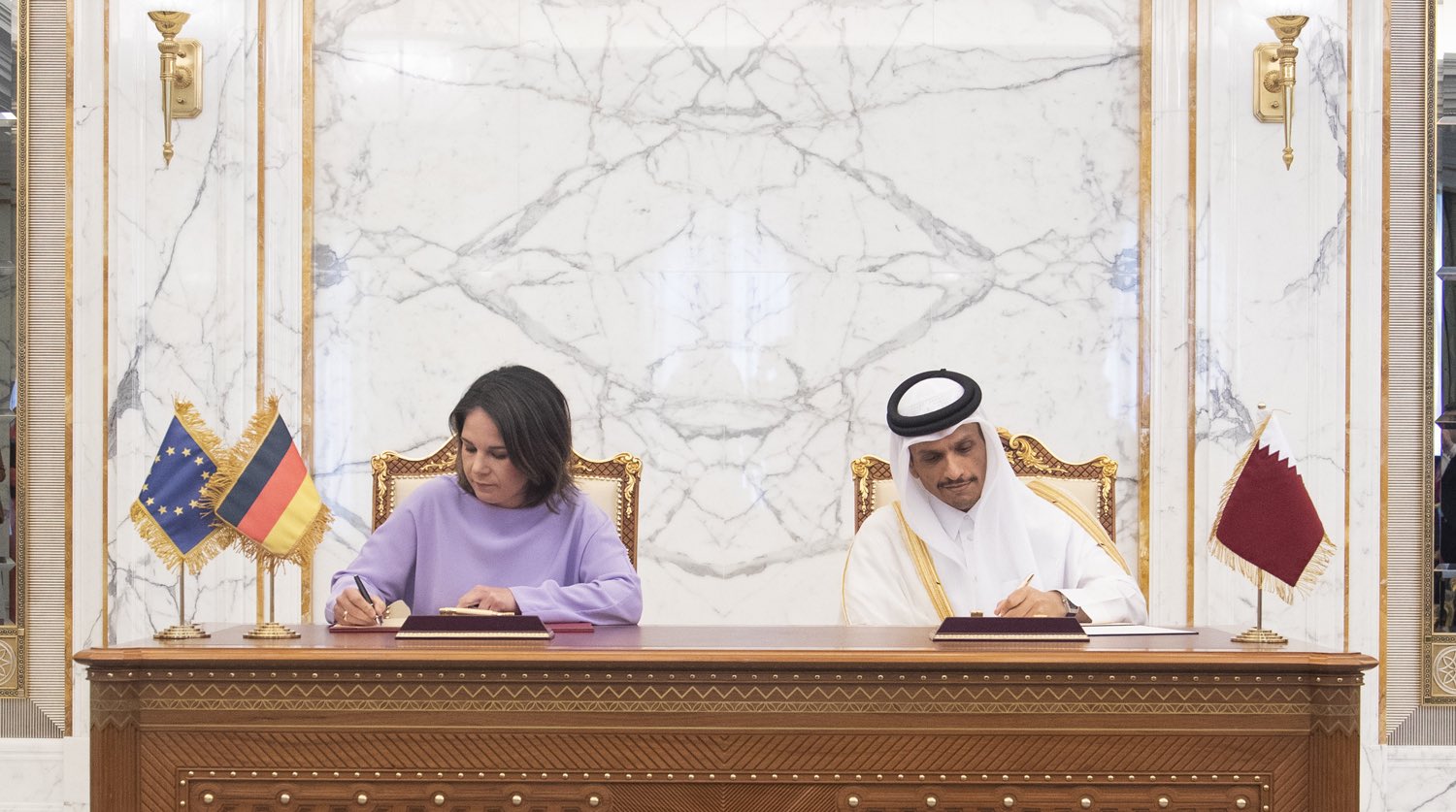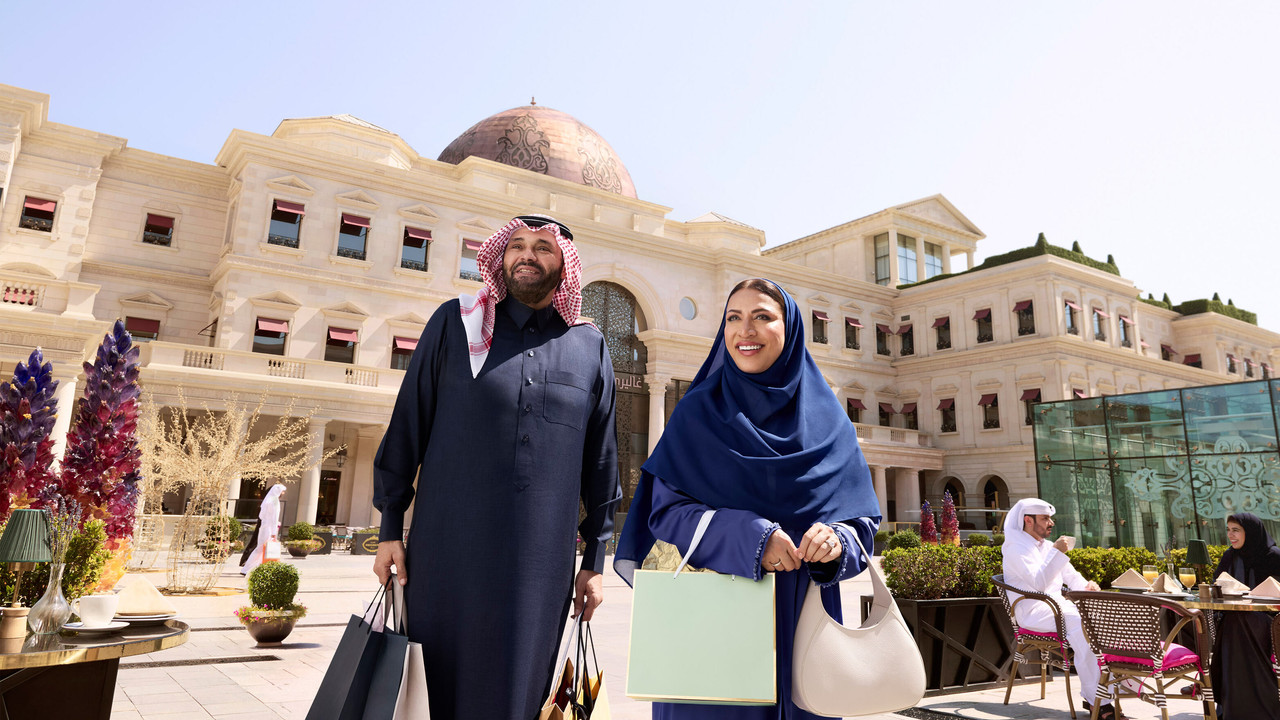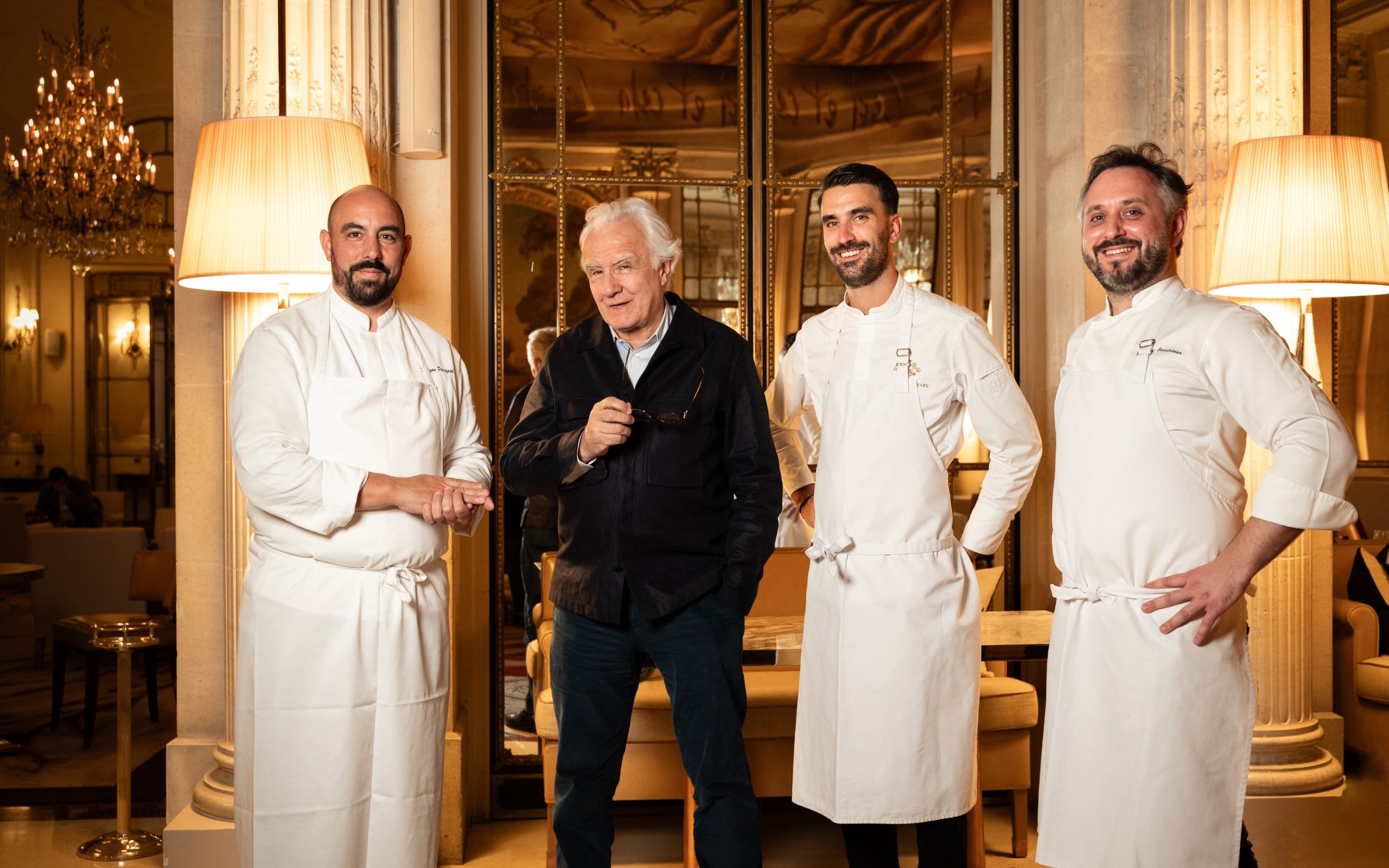Qatar’s prime minister and Germany’s foreign minister held a joint press conference in Doha on Wednesday, discussing a range of regional and international issues.
Doha will not stand in the way of the Arab League’s readmission of Syria to the bloc, Qatar’s Prime Minister and Foreign Minister Sheikh Mohammed bin Abdulrahman Al Thani said in a press conference with German Foreign Minister Annalena Baerbock on Wednesday.
The Qatari foreign minister said in a joint press conference on Wednesday with his German counterpart: “We have made our position clear since the decision was taken to return Syria to its seat in the Arab League, that the State of Qatar does not want to deviate from the Arab consensus.”
“Provided that each country maintains its own sovereign decision on normalising bilateral relations,” he added.
Both the Qatari and German ministers reinforced that the solution to restoring stability to Syria must be ‘comprehensive’, ‘just’ and should ‘satisfy the Syrian people.’
Sheikh Mohammed’s statements came at the same time as a gathering of Arab foreign ministers in Jeddah, preparing for the upcoming Arab League summit, which is set to take place on Friday and is anticipated to include Syrian President Bashar Al Assad for the first time in 12 years.
Despite countries in the region rekindling ties in recent years, Qatar has maintained its position in refusing to normalise with Assad.
Speaking about their different stances, Sheikh Mohammed said: “Of course, as I mentioned, there was coordination between the GCC countries in addition to Egypt, the Kingdom of Jordan and Iraq, and positions differed, not about the goals, but about the means to reach these goals, and this is a natural thing.”
“But we support that there be constructive work to achieve these goals.” And that any normalisation step with the regime contributes to achieving such a goal.
He further noted that there are some issues on which the Arab League bloc have agreed on, such as ensuring the safe return of refugees and finding a political solution based on United Nations resolution no. 2254.
Meanwhile the German foreign minister highlighted that there are numerous shared concerns between Germany and Qatar, such as the need for peace throughout the Middle East and cooperation on recent developments in Sudan, Syria and Yemen.
Palestine
During the joint press conference, Sheikh Mohammed reiterated Qatar’s condemnation of the bombardment of Gazan residents.
The Qatari official noted the discussions on stabilising the ceasefire in the besieged city, and the distribution of relief to the Palestinian people with the German Foreign Minister.
Sudan
The agreement inked between the Sudanese army and the Rapid Support Forces (RSF) in Jeddah earlier this week was also mentioned by the Qatari official.
“This is not a ceasefire; this is an affirmation of their obligations under international humanitarian law, particularly with regard to the treatment of civilians and the need to create space for humanitarian aid to operate,” a senior US State Department official said in a phone call last week, as quoted by reports.
Afghanistan
In response to a query from Al Jazeera regarding Afghanistan, Sheikh Mohammed said that he had spoken with his German counterpart about the country’s political and security issues.
Both parties stressed the significance of moving forward in establishing peace, respecting human rights—especially those of women—providing education for girls, and achieving development in all corners of the Afghan society.
They also emphasised the importance of having the international community cooperate in strengthening the capabilities of the people and empowering them against any internal crises.
The German diplomat thanked Doha for its repatriation efforts in Afghanistan.
Labour reform efforts
Baerbock praised the Gulf nation for its advancements in the area of human rights, noting that it was a leader in this area in part because of its collaboration with the International Labor Organisation.
Reforms take time to implement, she added, therefore having a clear political path is crucial.
The German foreign minister further emphasised that since her country is undergoing immigration law reforms, it needs people and minds to assist it in the areas of care, communication and other related issues, and that all of this can only be accomplished by offering enticing working conditions.
Bilateral relations
The two sides signed a Memorandum of Understanding (MoU) on the formation of a strategic dialogue prior to Wednesday’s joint press conference, represented by both the Qatari prime minister and the German foreign minister.
Sheikh Mohammed noted that a range of subjects were discussed during the talks between the two sides, including ways to improve relations and deepen cooperation on energy, the environment, education and other concerns, as well as a number of regional security issues.
Qatar hopes to create a system that encourages the creation of collaborative initiatives with Germany, the official noted.
The German Minister stated that Berlin and Doha will work together to guarantee energy supplies, and urged for greater international cooperation in the field of renewable energy.
The German official confirmed that her visit to the region represents Germany’s desire to organise and strengthen European ties with the Gulf Cooperation Council countries.







